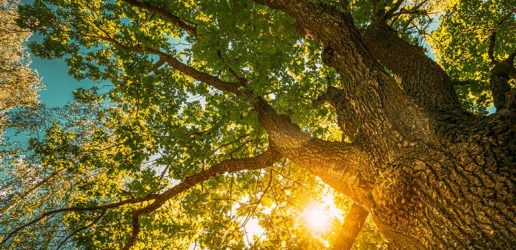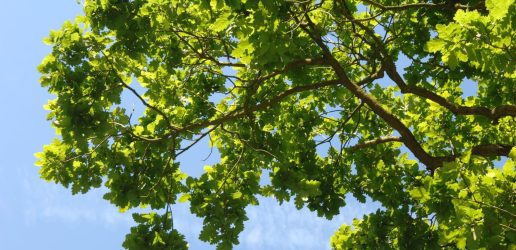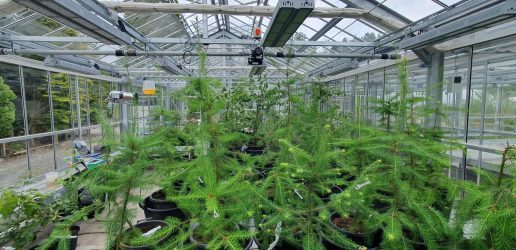Science provides evidence and evidence informs policy. But how exactly does the relationship work? One of Forest Research’s own scientists decided to find out and discovered three key lessons for scientists that can help improve their impact on policy.
Spatial scientist Chloe Bellamy had the rare opportunity to spend two days at Holyrood last December shadowing Roseanna Cunningham, Cabinet Secretary for Environment, Climate Change and Land Reform. Chloe’s goal was to get a better understanding of the day-to-day work of a policymaker and to gain an insight into how scientific information is considered during the policy making process.
With access to all but the most sensitive of meetings, Chloe joined the Cabinet Secretary for a wide range of appointments, from consultations on the new Climate Change Plan, to prioritising resources across the breadth of policy issues falling within the Cabinet Secretary’s portfolio.
So, what did Chloe learn from this experience? She explains:
“I learnt so much. For example, it really highlighted to me the mismatch in science and policy timetables and the importance of being ready to respond quickly to policymakers’ calls for evidence with clear summaries of research findings. I came away with three key lessons on how scientists can improve their impact on policy:
- Summarise findings for policy. As well as aiming to publish peer-reviewed papers, make it common practice to summarise your findings as easily digested bullet points throughout the course of a project, and as a ministerial brief at the end of a project. You can find some useful tips here.
- Get clued up and join in. Parliamentary matters are much more transparent and documented than I had previously realised. Anyone can get a pass to watch Ministers’ Questions at Holyrood (or Westminster) or find transcripts and footage of them on the internet. Also, look into joining science-policy networks, such as ESCom Scotland or the BES Scottish Policy Group.
- Don’t be intimidated. Holyrood was a much more formal environment than I’m used to. However, to engage with policymakers about your science confidently, it is important to feel calm and comfortable, so take opportunities to mix with them whenever possible.”
Chloe gained this opportunity by applying for the Parliamentary shadowing scheme run by the British Ecological Society on an annual basis.
Recent News
View All news
Woodland managers are invited to take part in a new project to protect the nation’s oaks
Join a webinar and in-person workshop to learn about monitoring and protecting oak trees.

Webinar: Observing and understanding oak health across the UK
An online webinar launching a new, practical oak-health monitoring system for woodland managers and volunteers across the UK.

Webinar: Understanding drought risk for UK woodland creation and forestry
Hear about new research on how rising drought risk is reshaping UK forestry and the tools being developed to support climate‑smart woodland creation.

Woodland managers are invited to take part in a new project to protect the nation’s oaks
Join a webinar and in-person workshop to learn about monitoring and protecting oak trees.

Webinar: Observing and understanding oak health across the UK
An online webinar launching a new, practical oak-health monitoring system for woodland managers and volunteers across the UK.

Webinar: Understanding drought risk for UK woodland creation and forestry
Hear about new research on how rising drought risk is reshaping UK forestry and the tools being developed to support climate‑smart woodland creation.
